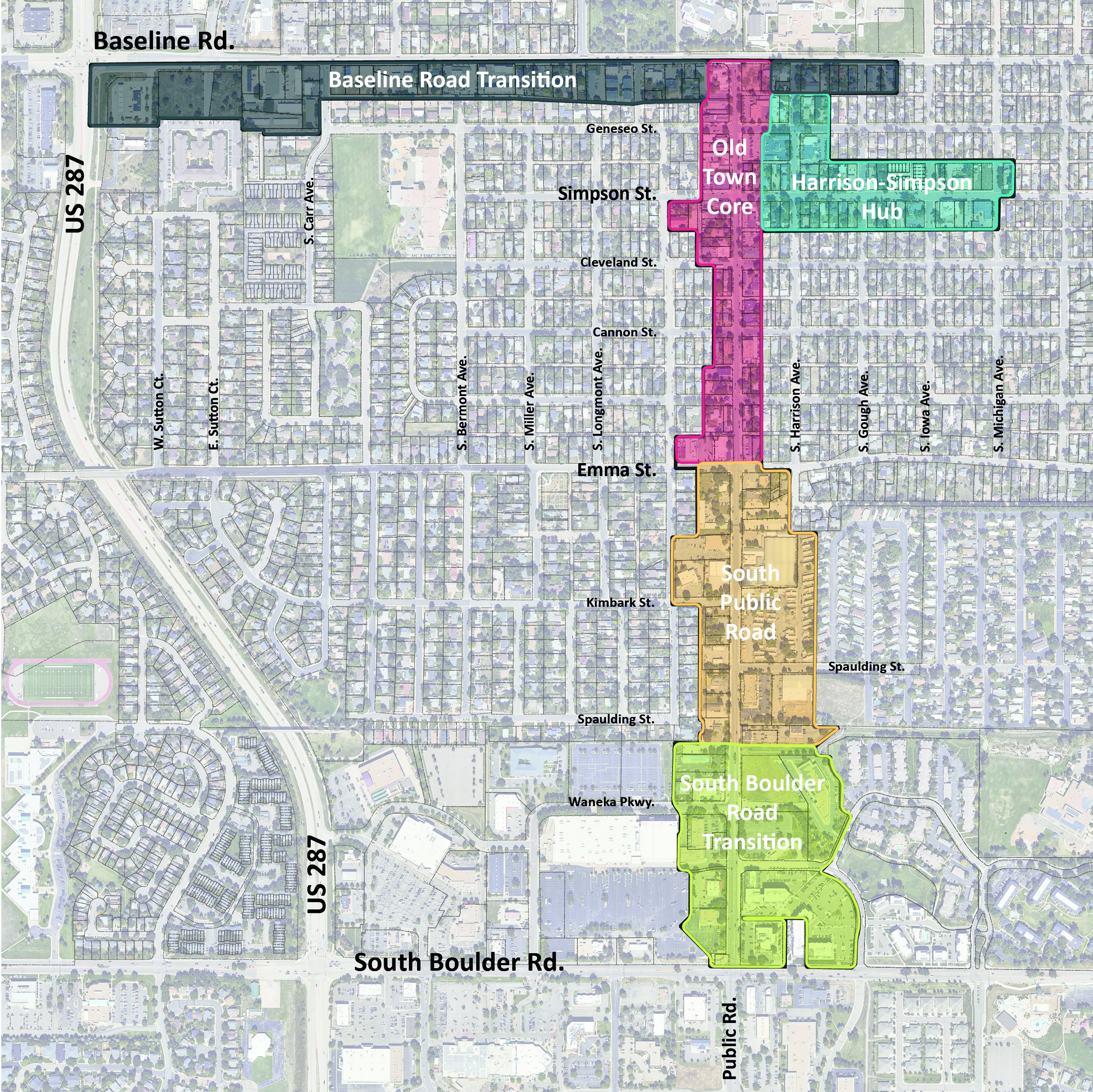
In 1999, the city council created a state-regulated board, the Lafayette Urban Renewal Authority (LURA), to address blight in specific areas of Public Road, Simpson Street and Baseline Road. Funding came from a 25-year tax increment financing (TIF) that ends October 2024. Consultants, city staff and a working group recommended to the city council the creation of a Downtown Development Authority (DDA) to replace LURA, including a new TIF mechanism.
Blight is generally defined as vacant and/or deteriorating buildings and infrastructure.
Ballot question 6A is to authorize the creation of the DDA.
Ballot question 6B is to authorize a new TIF for the district.
How much will taxes go up?
They won’t. The DDA will be funded by a TIF, the same as LURA. As the area’s property and sales tax revenue increase, that additional revenue will fund the DDA.
For example: If someone’s assessed property tax is $2,000 and that increases to $2,200, then $200 goes into the DDA.
How much money will it raise?
While projected revenue for Old Town Lafayette in 2024 is $1.8 million, it could take over a decade for the new TIF to accumulate that amount of yearly revenue, according to city staff.
What will the DDA do?
State law requires a board of directors. A draft plan has been written that sets the board's priorities, including support and retention for small businesses, recruiting new locally owned businesses, preserving the unique character of Old Town, encouraging reuse of existing buildings and infill, enhancing public gathering spaces, supporting creativity and culture, marketing and supporting more special events.
Past LURA projects have included everything from small projects (purchasing chairs and patios for businesses) to funding facade improvements and providing loans to businesses to help with revamping buildings.
Unlike LURA, a DDA has no power of eminent domain. The boundary of the DDA is extended slightly beyond the current district and seeks to include mostly commercial and mixed-use properties. DDAs have a 30-year lifespan.
Who will serve on the DDA board?
The draft plan recommends four-year terms for seven members. All must be from the district including, if possible, at least one member representing property and/or businesses from each of five new sub-areas, two business owners who do not own property in the district and one member of the city council. City staff would provide oversight and assistance.
What is a TIF?
When LURA was formed, the property and sales taxes collected in the designated district were tallied and that amount was set as the “base.” Those monies still flowed to the city, but money collected above the base amount went to the authority to address blight in the district. The property tax base was adjusted every two years.
The same process, governed by state law, would be followed with a new base amount if voters approve question 6B.
Who votes on these ballot questions?
Active registered voters who are property owners, business owners, residents or renters within the new district’s boundary. Ballots will be mailed to those who live and are registered to vote within the district. Voters who do not live in the district but who own or lease property there can request a ballot.
For more information, a map of the proposed district and/or to request a ballot, visit bit.ly/LafayetteDDA.
Other things to consider:
- If this measure fails, there would not be a specific source of revenue for downtown projects, which would be funded from the city’s overall budget. Some items funded by LURA would not be possible without this dedicated funding, such as assistance that is given to help businesses.
